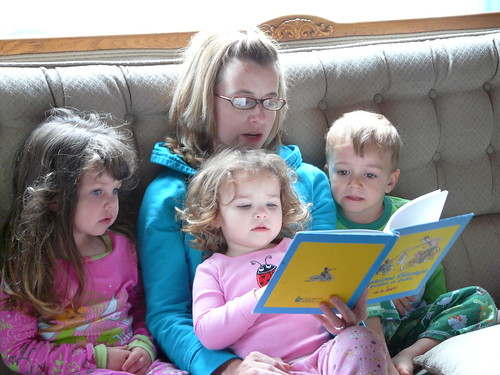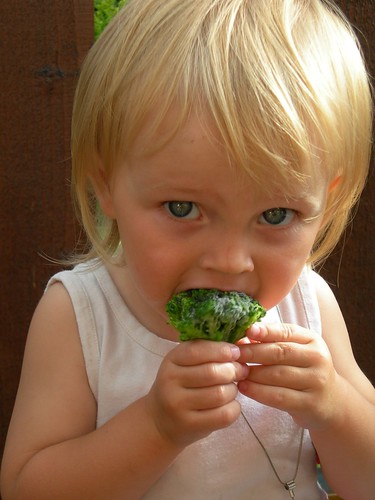****************************
As far as we know from the Bible, Jesus was not married. There is no specific text that someone can point to and say: “Here it is. This proves Jesus was married.” To say he was married is speculative to be sure. I believe that our Lord was not married and I think there are many proofs that one can point to that show this to be the case. I am working to get all these ideas together and write a serious research study on this subject. It is an extremely topical subject these days.
I have been working on this issue in the back of my mind for years, but now I am starting to get my thoughts down on paper. I will keep you posted on the progress of the larger work as it comes together. This is just the tip of the iceberg when it comes to answering this question about Jesus and His experience in the flesh.
In that larger work, I will devote considerable space to some pretty involved arguments in favor of Christ being single. As an example, I want to point to one statement made by Christ Himself and its place in the historical context of that period. I believe that it relates to this issue of Him being single. Let’s look at it:
“And seeing a crowd about him, Jesus commanded to depart unto the other side. And one scribe came to him and said, Teacher, I will follow you where ever you go. And Jesus said to him, The foxes have holes, and the birds have nests; but the Son of Man has not where to lay his head.” (Matthew 8:18-20)
Now, this passage is one we find in Matthew. Matthew is a book written from a decidedly Hebraic orientation. That means that the culture of the book, its themes, style, and tone is really oriented to Hebraic thinking and if we keep this in mind when reading this book, it will help us to understand it better. [Note: Of late, I have been doing research in Matthew and have been amazed at the things that I have seen – very exciting ideas to help show us just who Christ was and how He really relates well to humanity as that “Suffering Servant” of Isaiah 53. Will be having much more to say on this going forward as I do more research.]
Now, getting back to the passage, Jesus seems to quite clearly state that He at that moment in time, using His own comparison logically, did not have a residence, as did those animals. Now, maybe He did have a home in (or near) Nazareth, but are we sure He did? How can we know? Isn’t it interesting that while Christ was just near death, He said: “When Jesus therefore saw His mother, and the disciple standing by whom He loved, He said to his mother, Woman, behold, your son! Then said he to the disciple. Behold, your mother! And from that hour the disciple took her unto his own home.” (John 19:26,27) [Note: In the Greek language, the word “home” does not appear, but we understand it from the context that Mary was now to be reckoned as the mother of that disciple and he was to be her son and this meant that she would now be living with him.]
Perhaps after that time referenced in Matthew, Christ and His mother may have had to abandon their home wherever it was due to the fear they had of people seeking to kill Him. Note that after the raising of Lazarus from the dead, Christ retreated to near the border of Samaria (John 11:54) because of a fear of being caught and killed. Had He had a stable residence, at that time, it would not have been safe to go there for fear of being apprehended. By Jesus’ retreat to near the border of Samaria, He may have been positioning himself near that area in case He needed to flee into Samaria quickly. Rousseau in the book “Jesus and His World” mentions this exact point in the article on Ephraim which John 11:54 mentions. (p.87)
Now, this passage in Matthew has that Hebraic orientation that I talked about and we in fact know that the ancient Hebrews had some teachings about married life, housing and the role that having a home and a family played in ones life. They have left us some very interesting quotes to consider which not only bear on the passage in Matthew 8, but also concern the issue of whether or not Jesus was married. Note the following:
“From Deuteronomy 20:5 the Talmud derives the lesson: ‘The Torah teaches the correct procedure: a man should first build a house, then plant a vineyard, and after that marry.’” (Sotah 44a)” (Cohen, Everyman’s Talmud, pg. 162)
This procedure is quite good advice really and we note it even today here in Jerusalem. It is very common for men here today to have to provide the means to marry. A home, a car, holding down a good job, being able to provide for a family, etc. Without these things being in place, men just do not marry and women will not think of marrying someone who cannot provide these necessities. Generally speaking, their families will not allow it or will frown on it strongly and put pressure on a girl to either wait until the man is in a better position to provide these things or urge her to move one to someone else.
We can consider this issue when looking back on that passage in Matthew where Jesus indicates that He, at that time, did not have a place to rest his head. If He did not have a stable home, there is almost no conceivable way that He could have been married. It would seemingly have been a violation of the cultural norms at that time.
Cohen also continues with the very interesting following statement:
“A wife meant a home; hence the saying, ‘a man’s home is his wife’ (Yoma 1.1), and Rabbi Jose said, ‘Never have I called my wife by that word (e.g. – He never spoke of his wife as “his wife”), but always ‘my home.’ (Shab.118b).” (ibid.)
This is a lovely and deserved tribute to the wife of Rabbi Jose. It is a bit poetic and Middle Eastern culture is prone to such speech. Even today, I am always happy to hear my brother in law talking to his wife calling her “Ruhi,” (my spirit), or “Elbi, (my heart) or “Umri,” (my life). Makes my own “honey’s” and “darlings” seem a bit lacking certainly poetically speaking. Having said that, what we are talking about here really are terms which denote and point to a oneness relationship that loving married couples feel for one another.
These types of terms are used quite commonly even today and we can see from the Rabbi’s statement, he chose to call his wife “Beti” (my home). To him, having a wife was synonymous with having a home. The two were inseparable.
Now, once again consider that passage from Matthew in light of this statement. Jesus said he did not have a home at that time. Chances are that if he did not have a stable home, He also did not have a wife either and, of course, it goes without saying that this meant that Jesus would identify strongly with those who never knew the warm lovely marital embrace that married couples share, enjoy and engage in with the view to creating a family.
This was a part of God’s plan for Christ to experience not the best that humanity has to offer (which marriage, a family, children, a home and the loving warm embrace of that special someone). No! Christ came to earth to experience the worst that humanity has to offer.
He was born in ignominy, grew up as a tender plant, like a root out of a dry ground (Isaiah 53), must have been teased as a kid because people knew of the supposed ‘situation’ surrounding His birth, was not attractive (ibid), was sickly (ibid. and Luke 4:23), was poor, was rejected by His local community, was persecuted, and finally was killed in a most heinous painful way. This, of course, He did for you and I and went through these experiences bearing the sins of the world, not only the day He died, but throughout his whole life (Matthew 8:17).
Can you imagine how He must have felt going to weddings? Seeing the love of those who were soon to be married and to enter the grace of life together? Knowing that He would never have children or have the feeling of one’s own child saying “Abba”? Pretty hard stuff in a culture where the very first commandment of all is “be fruitful and multiply.”
Summing Up
When we look at that previously referenced passage in Matthew in light of some of these ideas, we can see that if Jesus was married, he was certainly operating outside of the some of the cultural norms of that period. This is just one point to consider when we are asking the question of whether or not our Lord was married. I will bring out more research on this issue in the near future. I look forward very much to your comments and feedback.
Biography of Samuel Martin
Samuel Martin was born in England and is the youngest child of Dr. Ernest L. and Helen R. Martin, who are both Americans. He lived in the UK for the first seven years of his life before moving to the USA with his family at age seven. He lived in the USA until 2001 when he married a native Israeli and relocated to live in Jerusalem. He and his wife, Sonia, have two daughters.
His experience with biblical scholarship began at an early age. His father, Dr. Ernest L. Martin (1932-2002), initiated a program in conjunction with Hebrew University and Prof. Benjamin Mazar, where over a five year period, some 450 college students came to work on an archaeological excavation in Jerusalem starting in 1969 (See Time Magazine, September 3, 1973, article ˝Digging for Credit.). Since that first trip, Samuel has visited Israel on 14 different occasions living more than five years of his life in the country. He has toured all areas of Israel as well as worked in several archaeological excavations.
Besides his experiences in his youth, he also worked on an excavation in northern. Israel under the supervision of Dr. Eilat Mazar of Hebrew University in Jerusalem and participated in a survey in the Judean Desert related to the Dead Sea Scrolls under the guidance of Dr. Robert Eisenman (CSU, Long Beach and author of "James, the brother of Jesus - Viking Penguin: 1997) and Dr. James D. Tabor (UNC, Charlotte and author of The Jesus Dynasty - Simon and Schuster: 2006).
His interests include social studies and the Bible, Hebrew studies and science as it relates to the Bible. He holds a B.A. degree with a special focus on Middle Eastern studies from Portland State University in Oregon. He was raised in an environment of high level Biblical scholarship. His father held a MA in Theology and a Ph.D. in Education and he is well known for his work concerning the Nativity of Jesus Christ (see Elwell, Dictionary of Evangelical Theology, article, Nativity of Jesus Christ or see www.hillsdale.edu/imprimis/1996/Dec96Imprimis.pdf) plus many other books and publications on the Bible.







![[4/365] Handy Man](http://farm6.static.flickr.com/5086/5326211358_693c15804a.jpg)



